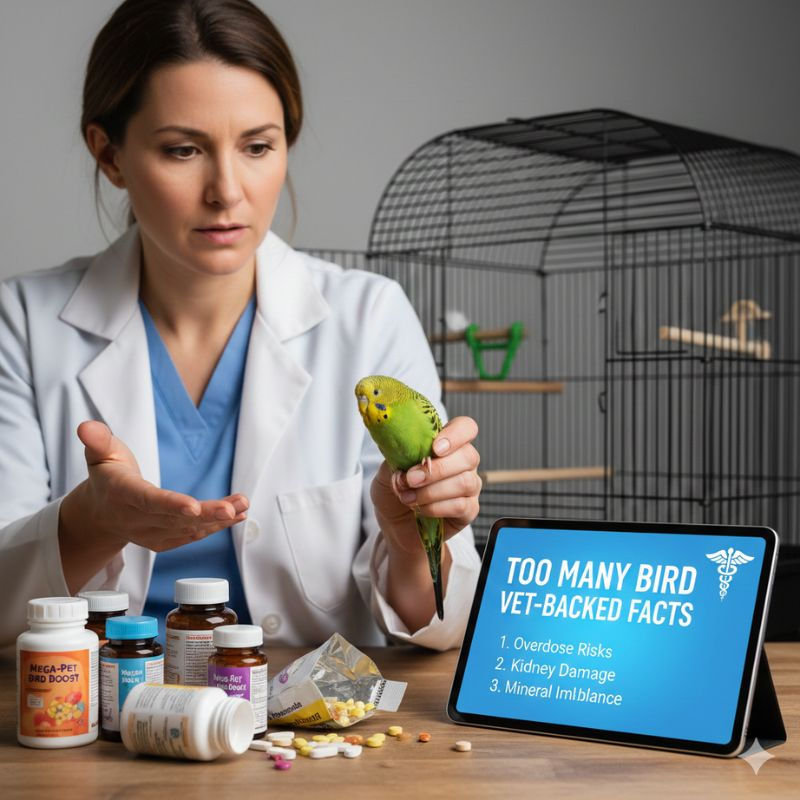Your Reptile is Sick? Don’t Panic—Here’s the Medication You Need!
- petperchlove
- Sep 17, 2025
- 3 min read

When your beloved reptile shows signs of illness—lethargy, loss of appetite, abnormal shedding, or respiratory issues—it can be alarming. The good news is that with proper reptile medication, most common ailments can be managed effectively, restoring your scaly friend’s health. From choosing the right treatment to understanding antibiotics for reptiles, knowing what to do early can make a huge difference.
Why Reptile Medication is Essential
Reptiles are resilient creatures, but they are also highly sensitive to environmental changes and infections. Unlike dogs or cats, their symptoms often appear subtle, making early intervention crucial. Reptile medication isn’t just about treating visible illness—it also helps prevent minor issues from becoming serious threats.
Some common reasons reptiles may need medication include:
Bacterial infections (like respiratory or skin infections)
Parasite infestations
Injuries or wounds
Metabolic or organ-related health issues
Using the right reptile medication ensures your pet recovers safely without unnecessary stress.
Types of Reptile Medications
Understanding the types of medications available helps you make informed decisions. Common categories include:
1. Antibiotics for Reptiles
Bacterial infections are common in reptiles. Antibiotics for reptiles are prescribed based on the type of bacteria and infection severity. These medications must be used under veterinary guidance because improper use can worsen the condition or cause resistance.
2. Antiparasitic Medications
Internal and external parasites can cause significant health issues. Antiparasitic treatments remove worms, mites, or ticks and improve digestion and skin health.
3. Topical Medications
For skin infections, wounds, or fungal problems, topical reptile medication such as creams or sprays can directly treat the affected area, promoting faster healing.
4. Supplements & Vitamins
Although not medications in the strict sense, supplements like calcium or multivitamins support recovery, especially when the reptile has an underlying deficiency.
How to Administer Reptile Medication Safely
Administering medication to reptiles requires patience and precision:
Consult a Veterinarian First: Never self-prescribe. The vet will recommend the correct reptile medication and dosage.
Use the Right Delivery Method: Oral, injectable, or topical medication—follow vet instructions carefully.
Monitor Your Pet: Track changes in appetite, energy, and behavior to ensure the treatment is effective.
Maintain a Clean Habitat: Clean enclosures reduce stress and prevent reinfection.
Common Signs Your Reptile May Need Medication
Swollen or discolored skin
Labored breathing or wheezing
Loss of appetite
Abnormal feces or digestive issues
Lethargy or unusual hiding behavior
Recognizing these early helps prevent serious complications and ensures timely use of antibiotics for reptiles or other prescribed medications.
Tips to Prevent Reptile Illness
Maintain proper temperature and humidity in the enclosure.
Feed a balanced diet specific to your reptile species.
Regularly clean and disinfect the habitat.
Schedule routine vet check-ups for early detection of health issues.
Final Thoughts
Seeing your reptile unwell can be stressful, but acting quickly and wisely can make all the difference. Using the right reptile medication and understanding antibiotics for reptiles ensures your pet recovers safely and continues to thrive. Always consult a veterinarian, follow instructions carefully, and maintain optimal care standards to prevent future illnesses.
FAQs About Reptile Medication
Q1: Can I give my reptile antibiotics meant for humans or other pets?
A: No. Reptiles have unique metabolisms, and human or mammal antibiotics can be harmful. Always use antibiotics for reptiles prescribed by a vet.
Q2: How long does it take for reptile medication to work?
A: Recovery time varies depending on the illness. Some infections respond in days, while more severe conditions may take weeks.
Q3: Can I prevent illness without medication?
A: Preventative care—proper diet, clean habitat, and optimal temperature—is key. However, reptile medication is essential when symptoms appear.
Q4: How often should I give my reptile medication?
A: Follow your veterinarian’s instructions exactly. Overdosing or irregular dosing can be dangerous.
Q5: Are there natural alternatives to reptile medication?
A: Some owners use supportive care like vitamin supplementation, but these are complementary. Serious infections still require reptile medication prescribed by a vet.



Comments